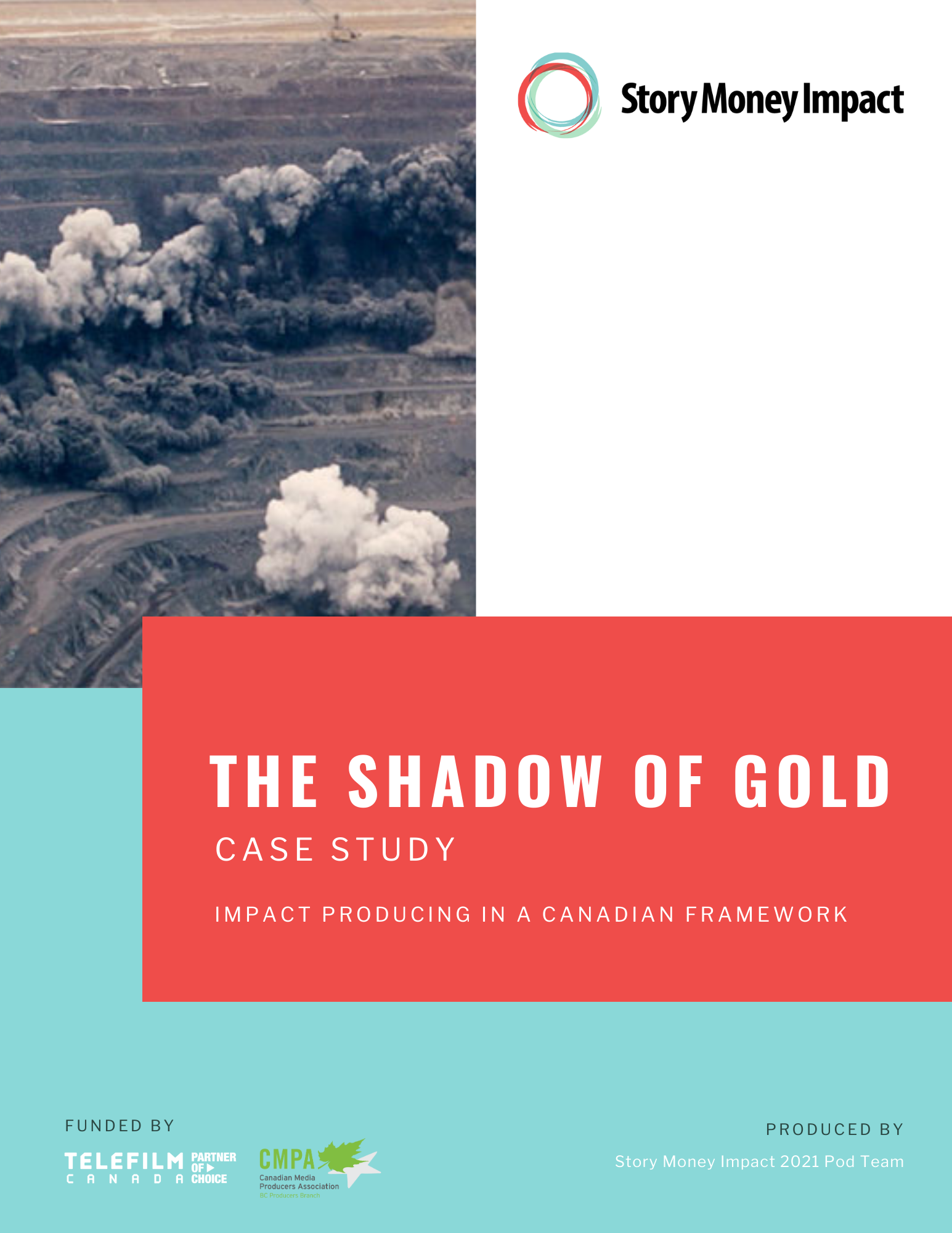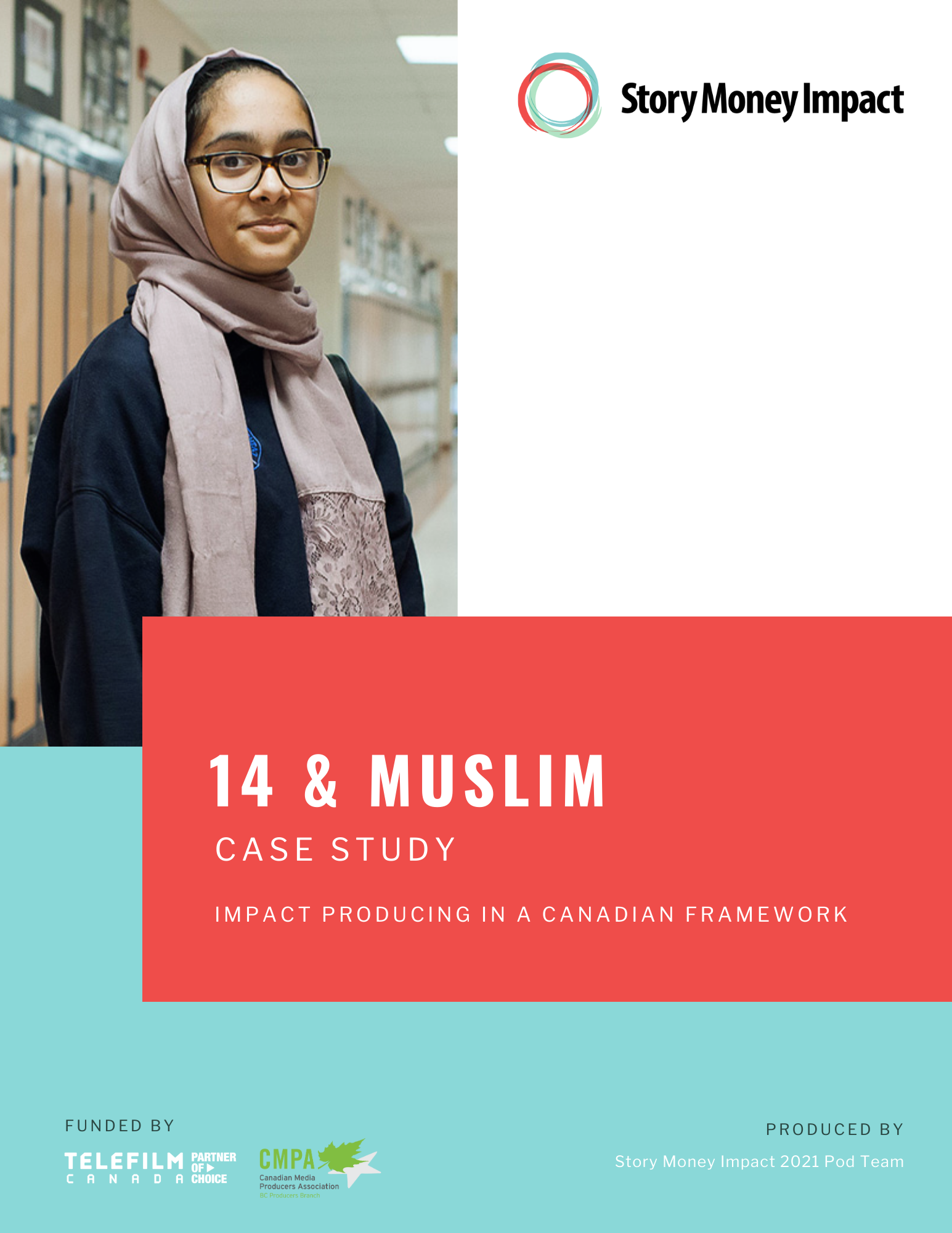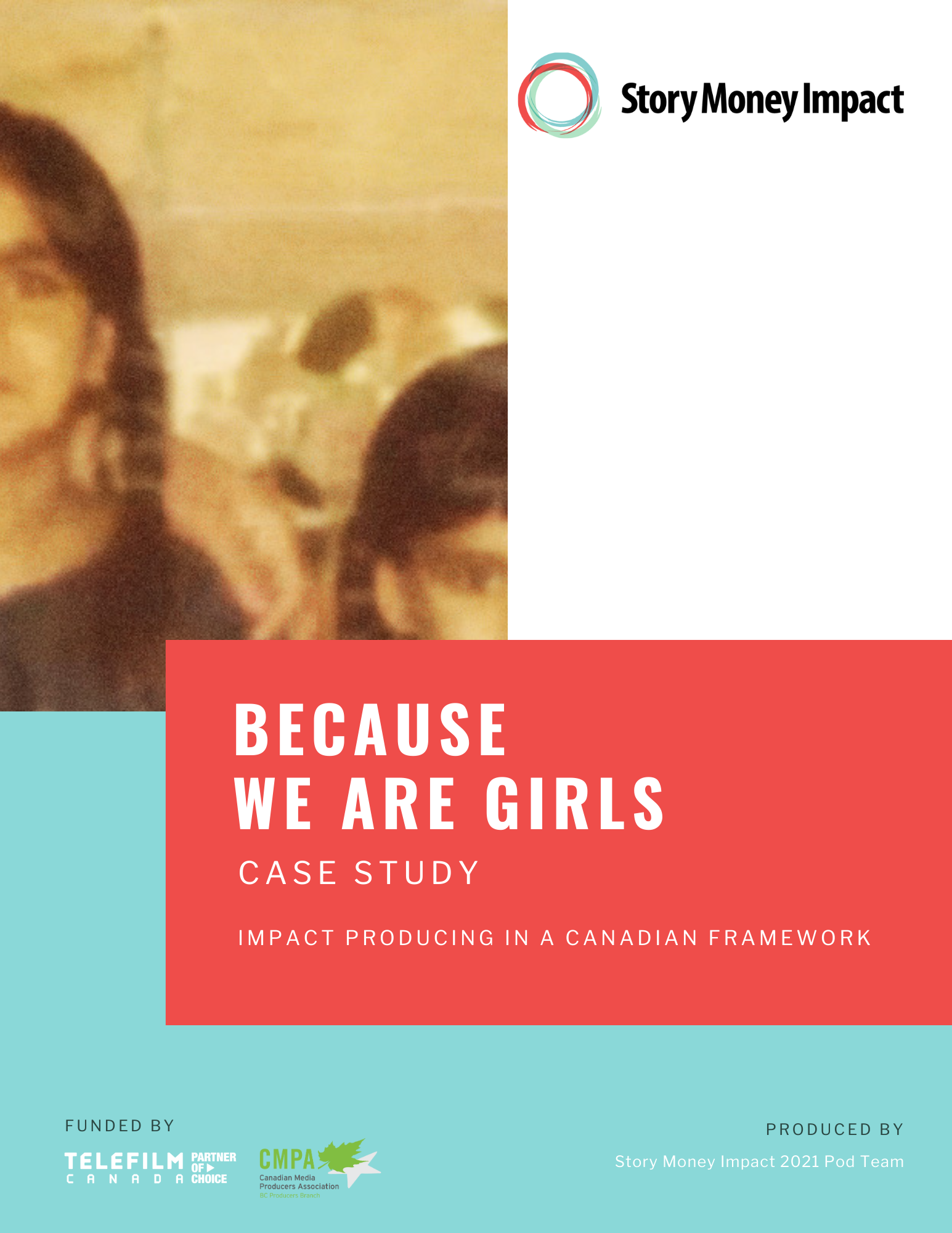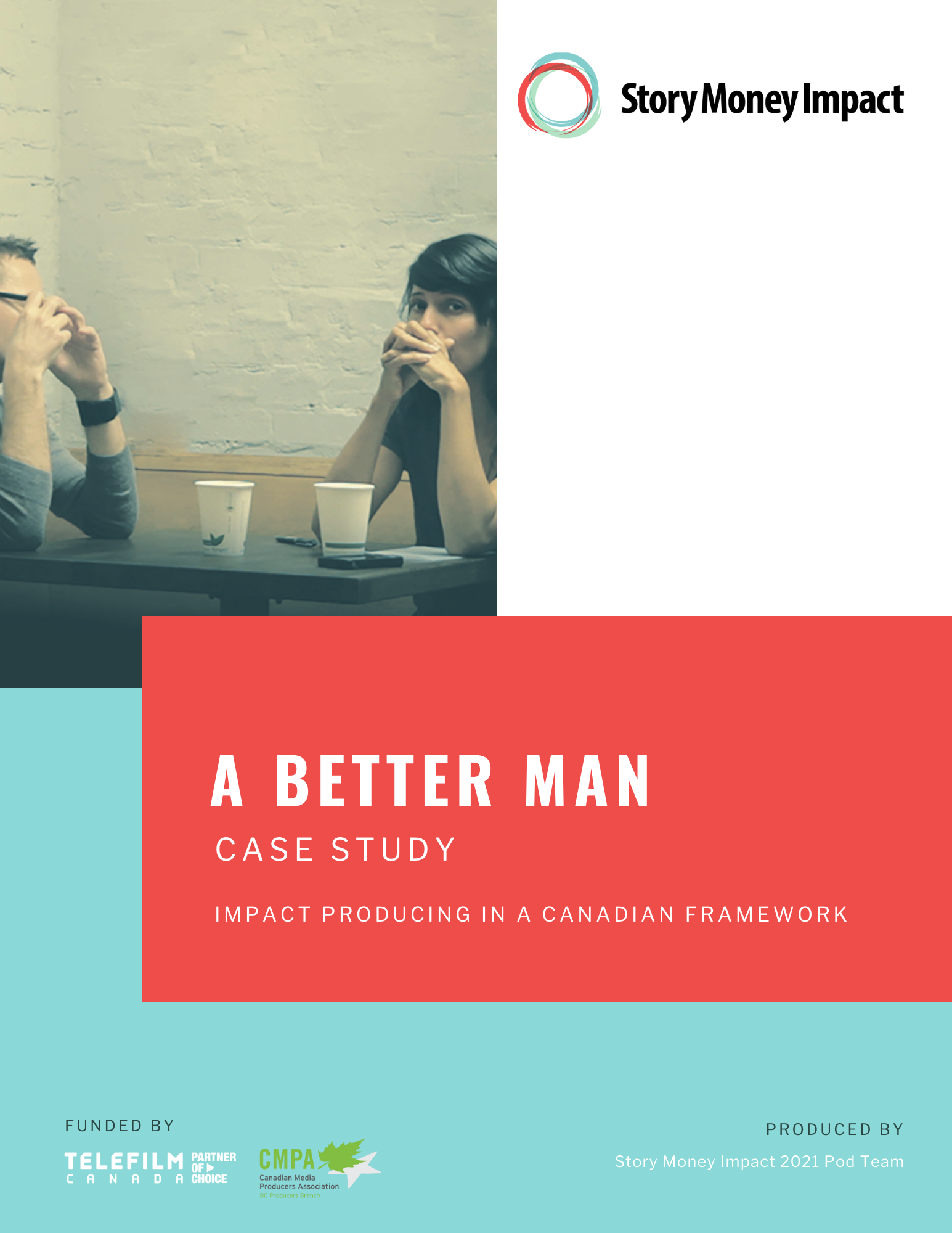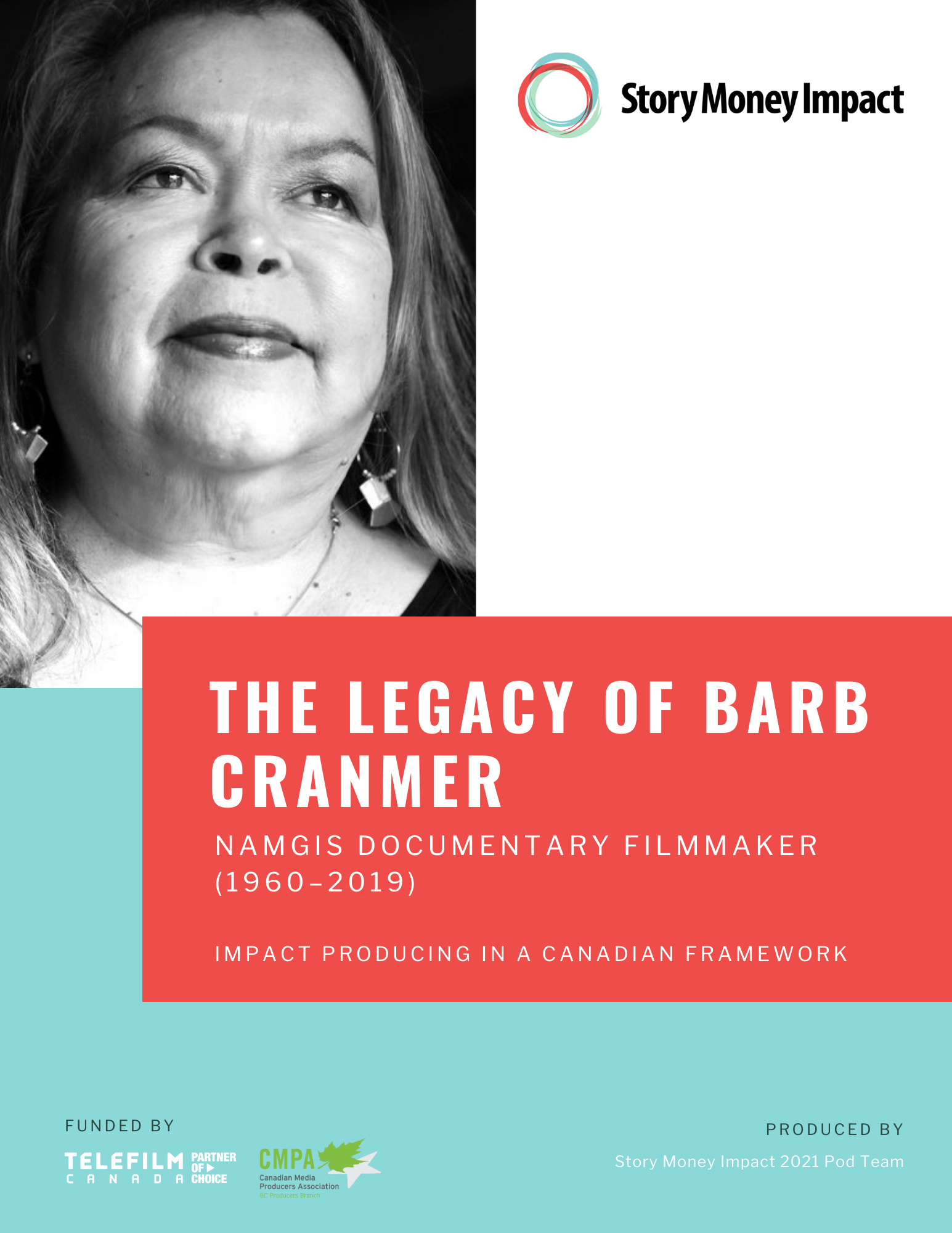IMPACT PRODUCING IN A CANADIAN FRAMEWORK
In 2021, the Story Money Impact Pod (five Canadian impact producers in training) chose a handful of films to investigate with regards to what impact these stories made in society. The purpose was to scan the Canadian impact film environment over the years to learn from what was happening and also to ask the question ‘what else may have been possible if there had been more formalized support for this impact work?’. There are many more amazing Canadian films that have done great things to address issues than are included in these studies. The selected films demonstrate different time frames, issues, points of view and financing as a broad first exploration.
shadow of gold (2019)
Directors: Sally Blake, Denis Delestrac, Robert Lang
Impact Lead: Jackie Garrow (Ring Five Impact Docs)
The Shadow of Gold is a global investigation of the ultimate talisman of wealth, beauty and power. Filmed in China, Peru, Canada, the U.S., London, Dubai, and the Democratic Republic of Congo, The Shadow of Gold reveals the impact of gold mining and the gold trade on our economy, environment and conflicts. Watch to discover what our lust for gold costs. And who pays the price.
the broadcast tapes of dr. peter (1993)
Director: David Paperny
Full of raw honesty and heartfelt testimony, The Broadcast Tapes of Dr. Peter feature the video diaries of Peter Jepson-Young, a 32 year old doctor living with AIDS. By using himself as the model, this TV series and feature documentary chronicles Dr. Peter’s last two years of life as he looks directly to camera and speaks about what it’s like to be a gay man living with and dying from AIDS.
14 & Muslim (2018)
Director: Wendy Rowland
Impact Lead: Jackie Garrow (Ring Five)
Shot over six months, 14 & Muslim follows three fourteen-year old Muslim students - Sahar, Malaika and Ahmad - as they graduate from a private Islamic elementary school and take their first tentative steps towards adulthood. Will they choose the familiar Islamic high school or will they opt for a public or even Catholic high school? Their stories move from the familiar to the strange, the known to the unknown, all unfolding against the larger societal backdrop -- a world increasingly hostile to Muslim youth. As we accompany Sahar, Malaika and Ahmad on their journeys, they reveal fears, anxieties, hopes and dreams. Up-close and personal, 14 & Muslim looks at how issues of diversity, identity and tolerance play out in the Canadian classroom.
because we are girls (2019)
Director: Baljit Sangra
A conservative Indo-Canadian family in small-town British Columbia comes to terms with a devastating secret: three sisters were sexually abused as children by an older relative. After nearly two and a half decades of silence, the sisters come forward — not only to protect young relatives but to show their daughters that change is possible.
A BETTER MAN (2017)
Director: Attiya Khan
On a hot summer night 22 years ago, 18-year-old Attiya Khan ran through the streets frightened for her life. She was fleeing her abusive ex-boyfriend Steve. Now, all these years later, Attiya has asked Steve to meet. She wants to know how he remembers their relationship and if he is willing to take responsibility for his violent actions. A Better Man offers a nuanced look at the revelatory and healing potential for all parties when men take responsibility for their abuse. It also empowers audience members to challenge domestic violence, whether it’s in their own relationships or as part of a broader movement for social change.
Coming Soon:
The Legacy of Barb CRANMER
Trailblazing Kwakwaka'wakw filmmaker Lakwalogwa, also known as Barb Cranmer, deserves a special mention in our discussion of the power of film to create impact. Born on April 6th, 1960 in the small village of ‘Yalis, Alert Bay, Barb was a prolific and highly esteemed documentary filmmaker. As an Indigenous woman, she broke systemic barriers by producing, directing and distributing films in an industry that was mostly white and mostly male. A recipient of numerous awards from the American Indian Film Festival to Telefilm Canada, her work explored issues closest to her heart, like local fishing rights, the revival of Chikat weaving and the devastating impacts of residential schools. Barb Cramner broke barriers and pushed the envelope. She was one of a select few Indigenous filmmakers who shifted who and how Indigenous stories are told in Canada. By telling the authentic, diverse and truthful stories of her people, her films impacted audiences at home and internationally – opening minds, creating opportunities for dialogue and bridging barriers.
SMI CASE STUDIES
the world is bright (2019)
Director: Ying Wang
Impact Lead: Anthony Truong Swan (Story Money Impact)
What would you do if your only child died mysteriously in another country and was buried sight unseen? Following the epic 10-year journey of an elderly Chinese couple searching for the truth behind their son’s death in Canada, what starts as a murder mystery becomes something else entirely. The film is a rare revelation of immigration, mental health and a Kafkaesque state bureaucracy at the heart of global migration.
Just eat it (2014)
Director: Grant Baldwin
Producer: Jen Rustemeyer
Filmmakers and food lovers Jen and Grant dive into the issue of waste from farm, through retail, all the way to the back of their own fridge. After catching a glimpse of the billions of dollars of good food that is tossed each year in North America, they pledge to quit grocery shopping cold turkey and survive only on foods that would otherwise be thrown away. In a nation where one in 10 people is food insecure, the images they capture of squandered groceries are both shocking and strangely compelling.
